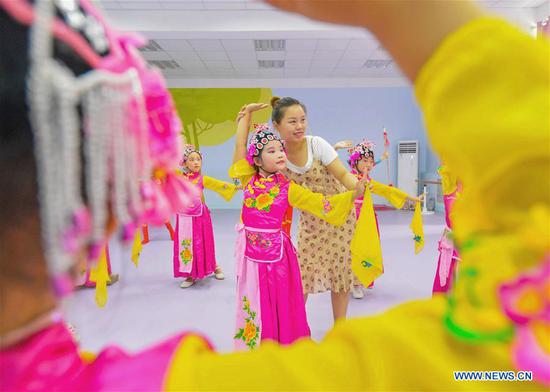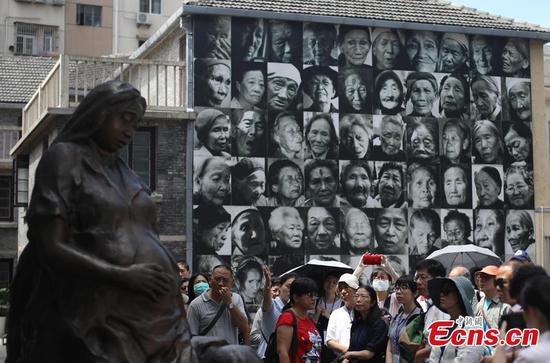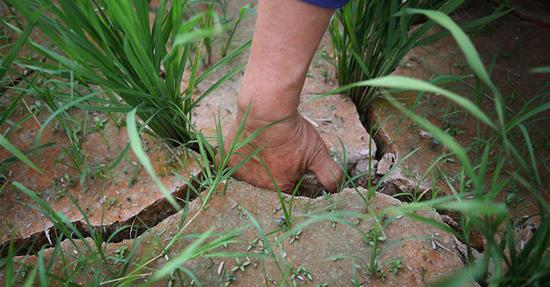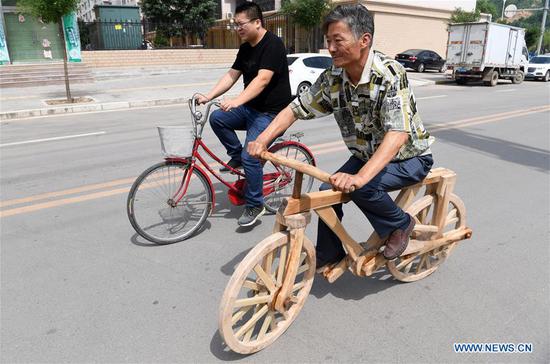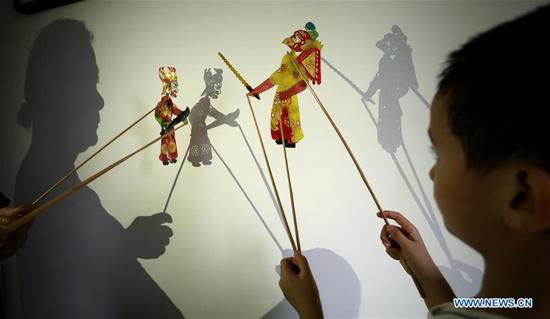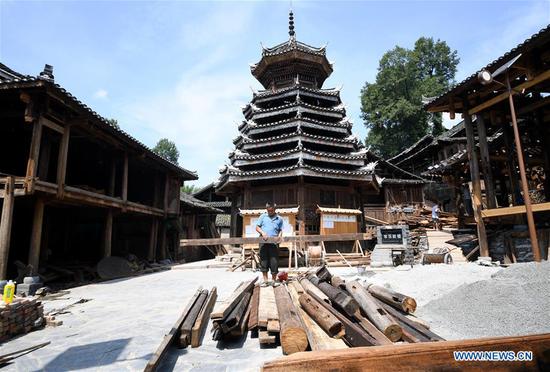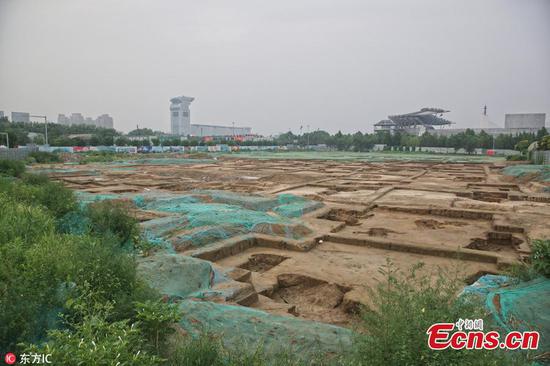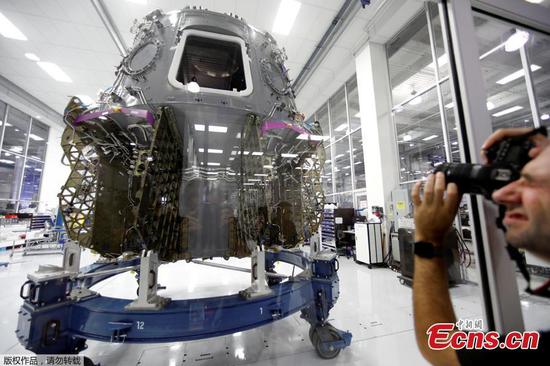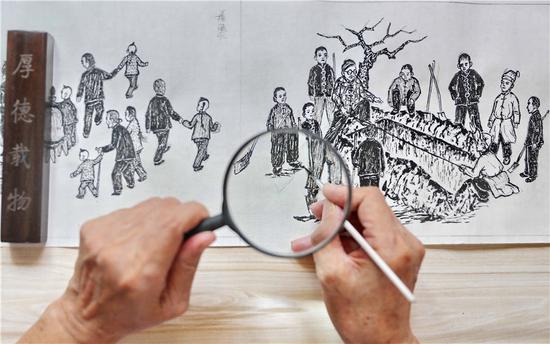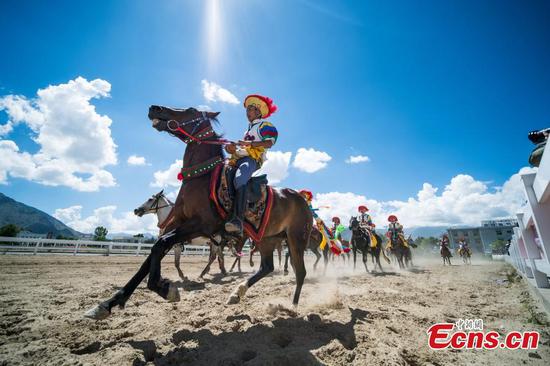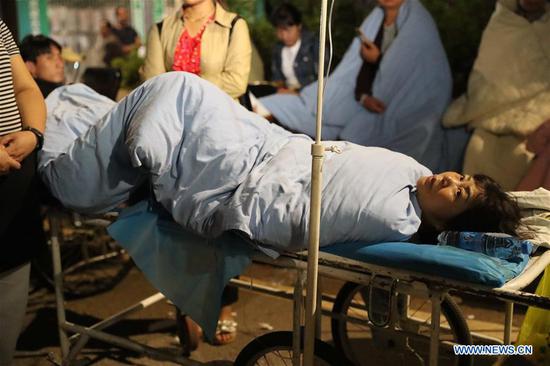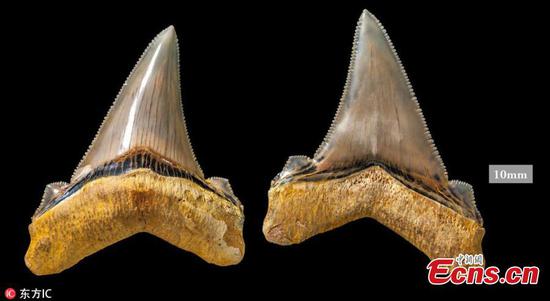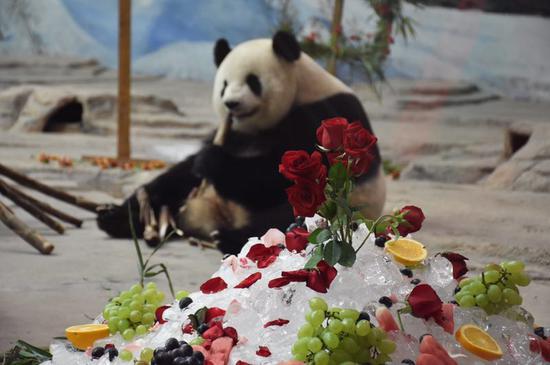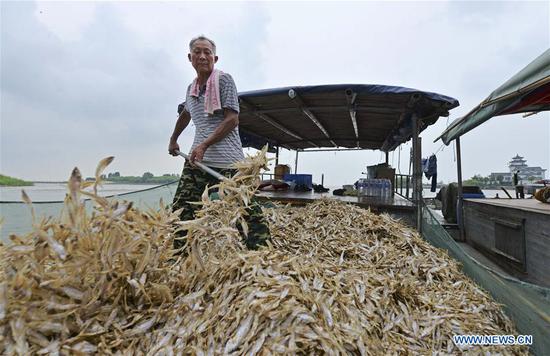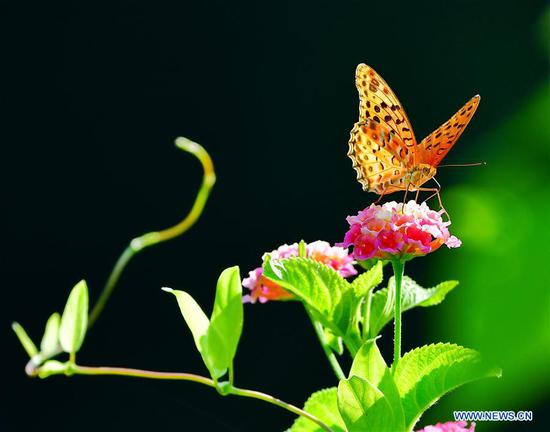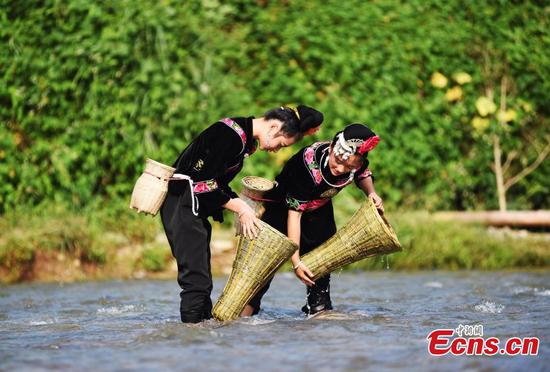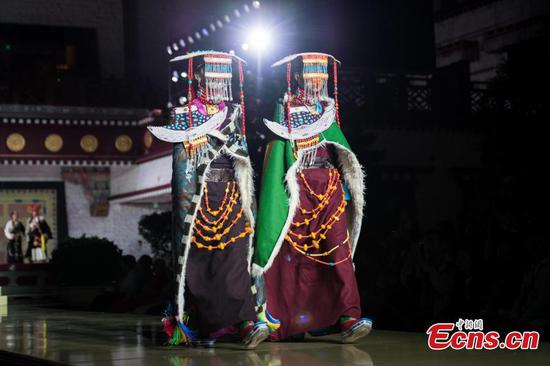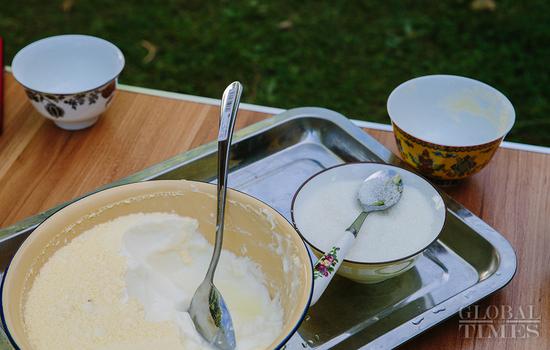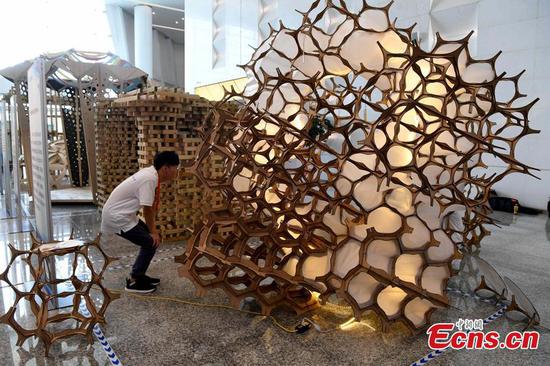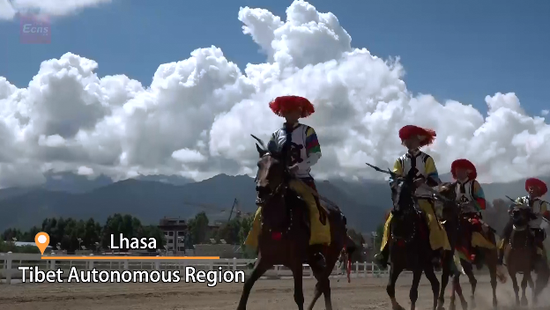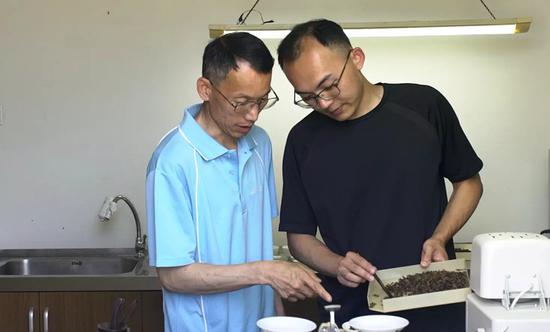
Tseng (right) and his father taste this year's tea from the plantation at their home. (Photo provided to China Daily)
The garden's main product is dongfang meiren (oriental beauty), a heavily oxidized, tiptype oolong tea that originated in Taiwan.
The tea is grown without insecticides to encourage a common pest, the tea green leafhopper, to feed on the leaves, stems and buds. When the insects suck the juices of the tea plants, the buds turn white along their edges, which gives the tea its alternate name, baihao (white-tip oolong). The insect bites start the oxidation of the leaves and tips, adding a sweet note to the tea.
"The growth of this tea requires a good ecological environment, without pesticides or herbicides, to guarantee the growth of the insects, and my father thought the environment here is good," Tseng said.
Making authentically flavored white-tip oolong is not easy because tea plant growth and the period when the leafhoppers are active do not coincide perfectly, leading to the wastage of some plants.
Tseng said the tea plants need to be pruned before the leafhoppers appear to make sure the tea leaf buds can be sucked by the insects, but it was difficult to pinpoint the exact timing each year.
"Initially, our tea products were marketed in Taiwan, but we gradually opened up the mainland market because the flavor of island tea has become more acceptable on the mainland, and vice versa, as interpersonal exchanges grow," Tseng said.
The tea also proved to be a matchmaker for Tseng, leading to a cross-Straits marriage. He met his wife, who is from Fujian, at a tea exhibition in 2012, where he introduced her to the special tea and told her the story behind it.
Tseng said that as they chatted, they discovered they were both interested in online sales and shared a lot of ideas on e-commerce. "We created our online tea brand together in 2015, the year we married," he said. "The business is going well, and this year we had a son."
They are now considering the development of health tourism in the garden by planting medicinal Chinese herbs and providing tea-making experiences for visitors, according to Tseng, whose sister is studying traditional Chinese medicine at Beijing University of Chinese Medicine.
He said relatives and friends in Taiwan did not understand his grandfather's plan to start a business in Fujian at first, but attitudes have changed significantly in the years since.
"I remember when I first arrived at Zhangzhou in 2004 and became the first Taiwan student in the local middle school," Tseng said. "I cried secretly several times because studying and life on the mainland was different from Taiwan, but the pioneering spirit of the family encouraged me a lot.
"I have seen my grandfather's difficulty in reclaiming the barren mountain, and my father's courage not to surrender. The development of the mainland in past years has also pushed our family to constantly upgrade our business."









